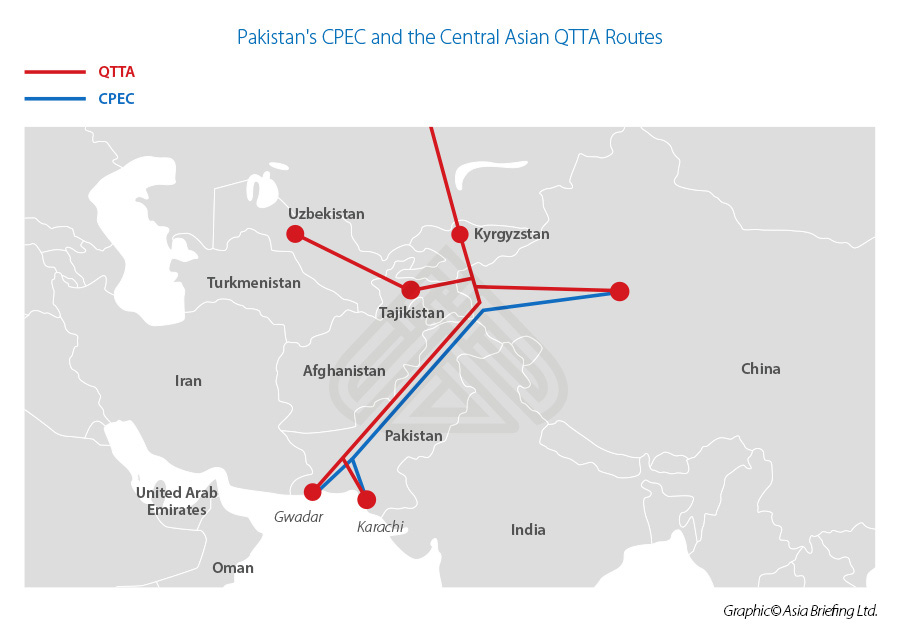Uzbekistan Looks To China’s Belt & Road And Pakistan’s CPEC To Connect Through To Gwadar & Karachi Ports
Op/Ed by Chris Devonshire-Ellis
Uzbekistan has formally sought Pakistan’s support for accession to the Quadrilateral Traffic in Transit Agreement (QTTA) in a bid to utilize Karachi and Gwadar ports for its trade operations, joining Pakistan, China, Kyrgyzstan and Kazakhstan. The diplomatic request was made on Friday (May 8).
The Quadrilateral Traffic in Transit Agreement (QTTA) is a transit trade deal between China, Pakistan, Kyrgyzstan and Kazakhstan for facilitating transit traffic and trade. In February 2017, Tajikistan has also expressed interest in joining the deal, and is waiting for Parliamentary approval, while Uzbekistan has just made its interest known.
The road project is related to the China Pakistan Economic Corridor (CPEC), which aims to provide China and Central Asia access to Pakistani ports, and specifically the heavily China invested Gwadar Port in Pakistan’s southern Baluchistan Province. That connectivity is potentially lucrative for Central Asian exporters wishing for easier access to South-East Asian and other markets in Africa and Australasia.

The strategical importance of the QTTA project was enhanced due to the implied failure of the Afghanistan-Pakistan Transit Trade Agreement. Afghanistan has insisted that India be included in their bilateral transit trade as a condition for allowing Pakistan access to Central Asia, even threatening to cut off the agreement if it was not reciprocated. Pakistan’s tensions with India has made such an arrangement awkward.
The QTTA therefore provides Pakistan an alternative gateway to Central Asia by completely circumnavigating Afghanistan. It would use the Karakoram Highway, which connects north Pakistans’ Gilgit-Baltistan regions to China’s Xinjiang Province, which links to Central Asia.
The Karakoram Highway runs through the China-Pakistan border crossing at Taxkorgan, and heads north to Kashgar, where it is connected via rail and air to Urumqi and China’s national high speed rail network, in addition to border rail routes running west into Kazakhstan.
Related Reading
About Us
Silk Road Briefing is published by Dezan Shira & Associates. The firm was established in 1992 and has 28 offices throughout Asia, including the ASEAN countries of Indonesia, Malaysia, Philippines, Singapore, Thailand and Vietnam, in addition to 12 offices across China and three in India. We assist foreign investors throughout the region. Please contact us at asean@dezshira.com or visit us at www.dezshira.com





